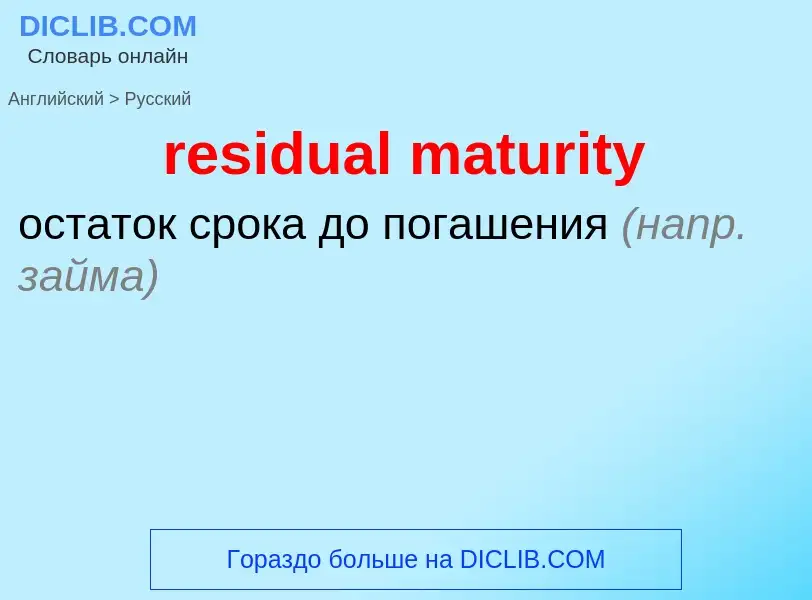Translation and analysis of words by ChatGPT artificial intelligence
On this page you can get a detailed analysis of a word or phrase, produced by the best artificial intelligence technology to date:
- how the word is used
- frequency of use
- it is used more often in oral or written speech
- word translation options
- usage examples (several phrases with translation)
- etymology
residual maturity - translation to russian
математика
нормированный остаток
2) наступление срока (напр. выплаты страховой суммы); срок долгового обязательства
3) возмужалость
- at maturity
- before maturity
- have a maturity
- maturity of loan
- acceptance maturity
- demographic maturity
- indeterminate maturity
- intermediate maturity
- long maturity
- obligatory maturity
- overall average maturity of loans
- residual maturity
- ultimate maturity
Definition
Wikipedia
A maturity model is a framework for measuring an organization's maturity, with maturity being defined as a measurement of the ability of an organization for continuous improvement in a particular discipline (as defined in O-ISM3). The higher the maturity, the higher will be the chances that incidents or errors will lead to improvements either in the quality or in the use of the resources of the discipline as implemented by the organization.
Most maturity models assess qualitatively people/culture, processes/structures, and objects/technology.
Two approaches for implementing maturity models exist. With a top-down approach, such as proposed by Becker et al., a fixed number of maturity stages or levels is specified first and further corroborated with characteristics (typically in form of specific assessment items) that support the initial assumptions about how maturity evolves. When using a bottom-up approach, such as suggested by Lahrmann et al., distinct characteristics or assessment items are determined first and clustered in a second step into maturity levels to induce a more general view of the different steps of maturity evolution. Topics that are covered in maturity models include:

